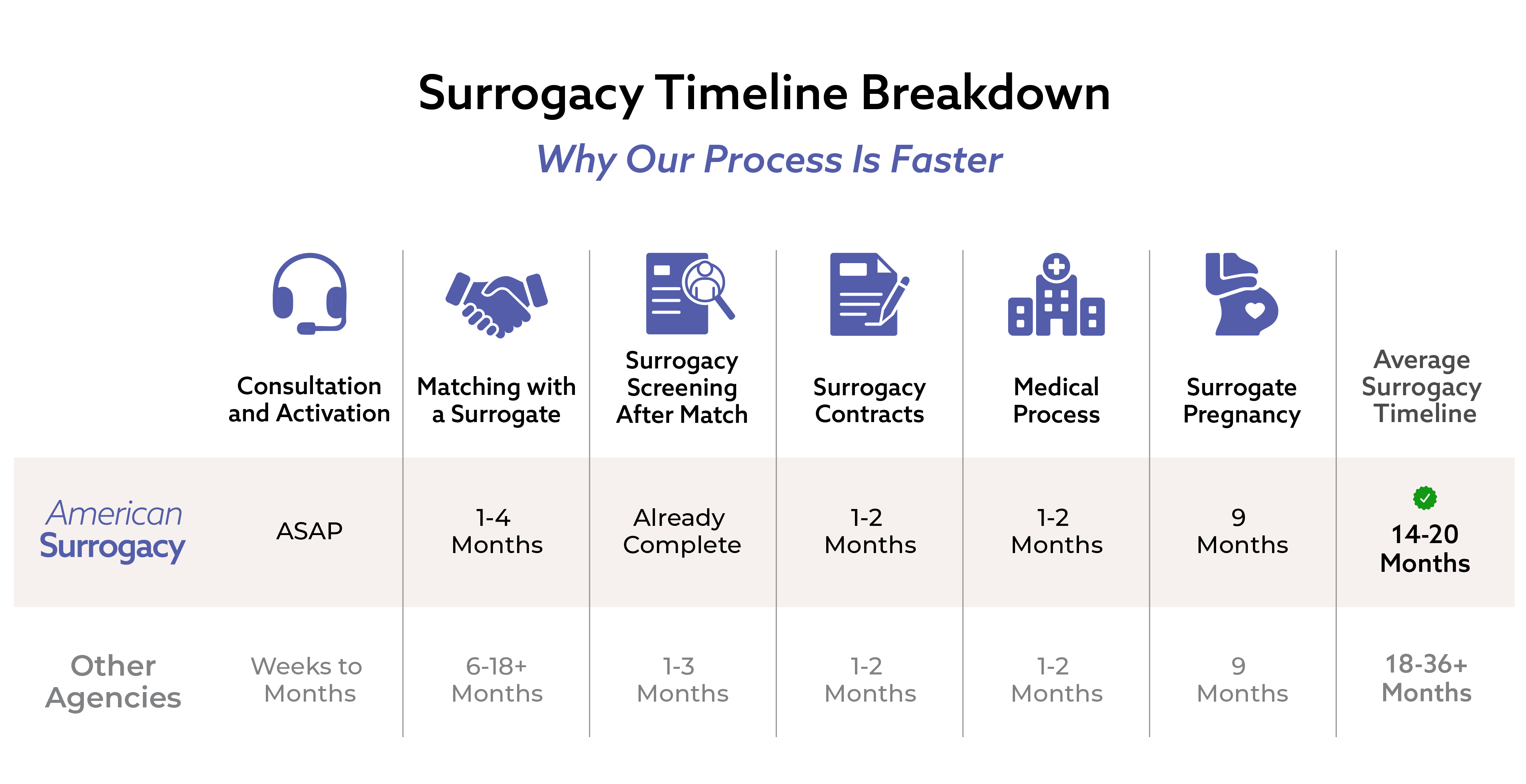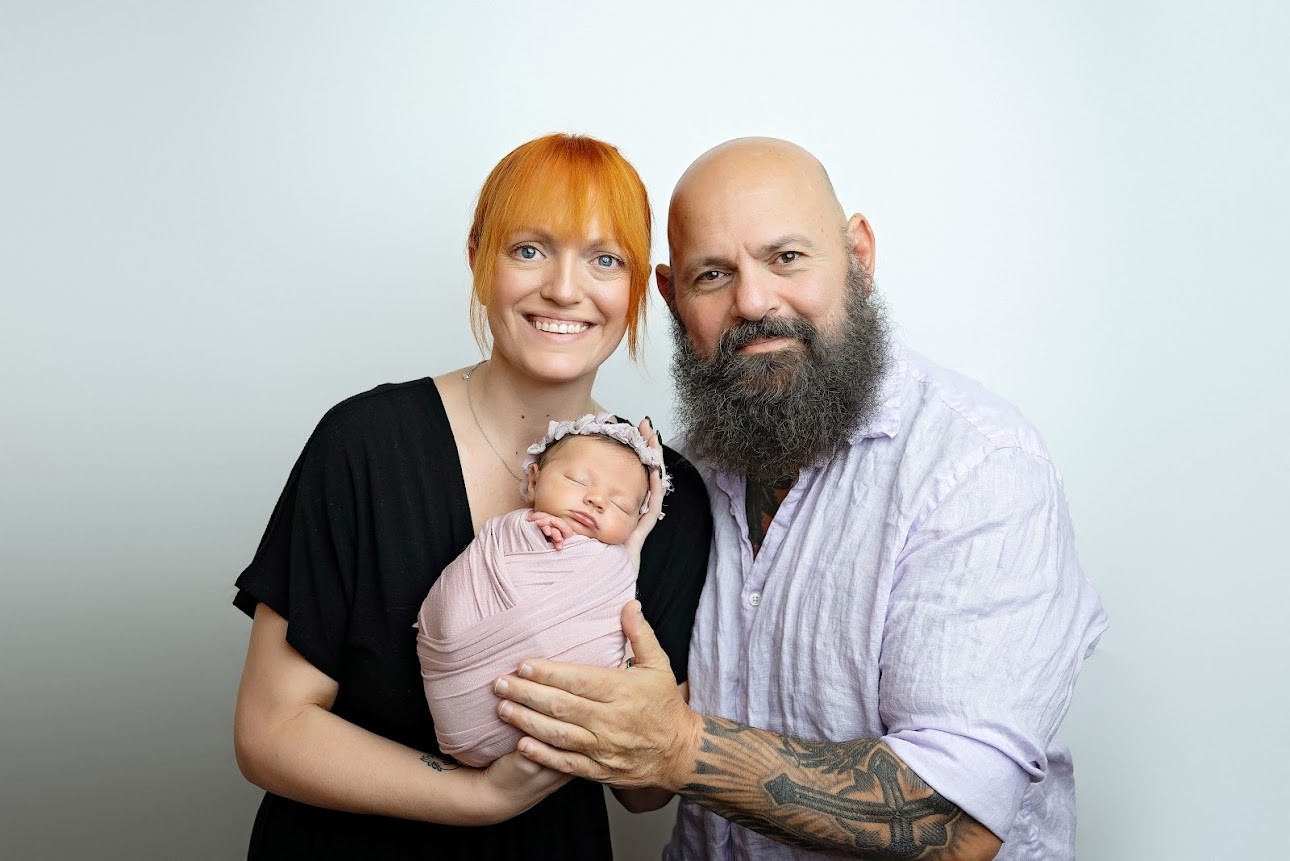Living with lupus doesn't mean your dreams of parenthood have to end. While lupus can create significant challenges for conception and pregnancy, thousands of women with autoimmune conditions have successfully welcomed healthy babies through gestational surrogacy. This path allows you to have a genetically related child while protecting your health and ensuring the safest possible outcome for your baby.
Learn About Our Surrogacy Programs
Whether you've been trying to conceive naturally, considering IVF, or have already faced pregnancy complications due to lupus, understanding all your family-building options can help you make the best decision for your unique medical situation. We'll walk you through how lupus affects fertility and pregnancy, when surrogacy becomes the recommended path, and exactly how the process works for intended parents with autoimmune conditions.
Why Can't I Get Pregnant with Lupus? Understanding Your Options
Lupus affects your body's ability to conceive and safely carry a pregnancy in several complex ways. The autoimmune inflammation that characterizes lupus can interfere with ovulation, implantation, and the delicate hormonal balance needed for a healthy pregnancy. Additionally, many lupus medications that keep your condition stable are not safe during pregnancy, creating a difficult choice between managing your health and protecting a developing baby.
For women with lupus, the path to parenthood often involves weighing significant medical risks against the deep desire to have children. Your rheumatologist may have already discussed these challenges with you, but you may not have been told about all your options for safely building your family.
How Lupus Affects Your Body's Ability to Conceive and Carry a Baby
Lupus can impact fertility through multiple mechanisms that many women don't fully understand until they begin trying to conceive. The chronic inflammation associated with lupus can affect ovarian function, potentially reducing your ovarian reserve or causing irregular ovulation. Some women with lupus experience premature ovarian failure, while others find that lupus flares disrupt their menstrual cycles and make timing conception difficult.
The autoimmune activity in lupus can also create an environment in your uterus that makes implantation challenging. Your immune system, which is already overactive, may attack embryos as foreign substances, preventing successful implantation even when fertilization occurs normally. This can lead to repeated early pregnancy losses that are emotionally devastating and medically complex to treat.
Hormonal treatments commonly used in fertility treatments can trigger lupus flares in some women. Estrogen-based medications, including many fertility drugs, can worsen lupus symptoms or increase disease activity. This creates a catch-22 situation where the treatments you need to conceive may actually worsen the condition that's making conception difficult.
IVF with Lupus: What Really Works and What Doesn't
Many women with lupus turn to IVF hoping it will overcome their fertility challenges, but the results are often more complicated than expected. While IVF can help with some fertility issues related to lupus, it doesn't address the fundamental problem of whether your body can safely carry a pregnancy to term.
IVF success rates are generally lower for women with autoimmune conditions like lupus. The medications used in IVF cycles can trigger disease flares, and the stress of repeated cycles can worsen lupus symptoms. Some women find themselves caught in a cycle of IVF attempts that drain their energy, finances, and emotional reserves without resulting in a healthy pregnancy.
Even when IVF results in pregnancy, women with lupus face significantly higher risks of complications. The immunosuppressive medications needed to prevent organ rejection during pregnancy can conflict with lupus treatments, creating complex medical management challenges that require coordination between multiple specialists.
The Real Risks: What Your Doctor May Not Tell You About Lupus and Pregnancy
Pregnancy with lupus carries serious risks that extend beyond typical pregnancy complications. Women with lupus nephritis face particularly high risks, including kidney failure, severe hypertension, and life-threatening complications like eclampsia. These risks don't just threaten the pregnancy—they can cause permanent damage to your health and potentially put your life in danger.
Antiphospholipid syndrome, which commonly occurs alongside lupus, increases your risk of dangerous blood clots during pregnancy. These clots can cause stroke, heart attack, or pulmonary embolism, all of which are medical emergencies. Even with careful monitoring and blood-thinning medications, the risk remains elevated throughout pregnancy and the postpartum period.
Your babies are also at risk when you're pregnant with lupus. Neonatal lupus can cause serious heart problems in newborns, while the medications used to manage lupus during pregnancy can affect fetal development. Pregnancy loss rates are significantly higher for women with lupus, and babies who survive to term often require intensive medical care.
When Surrogacy Becomes Your Best Path to Parenthood
Gestational surrogacy offers a solution that protects your health while allowing you to have a genetically related child. When pregnancy poses significant medical risks due to lupus, surrogacy eliminates those dangers entirely while giving you the family you've dreamed of. This isn't giving up on your dreams—it's choosing the safest, most effective path to achieve them.
Unlike other fertility treatments that require you to manage lupus symptoms while trying to conceive and carry a pregnancy, surrogacy allows you to focus on your health while an experienced surrogate carries your child. This approach has helped thousands of women with autoimmune conditions become parents safely and successfully.
Many reproductive endocrinologists and rheumatologists now recommend surrogacy as the first-line treatment for women with severe lupus who want children. Rather than risking multiple IVF failures or dangerous pregnancy complications, surrogacy provides a direct path to parenthood with significantly higher success rates and no medical risk to the intended mother.
Your Baby Can Still Be Genetically Yours Through Surrogacy
One of the biggest misconceptions about surrogacy is that you're giving up the opportunity to have a genetically related child. Through gestational surrogacy, your baby can be 100% genetically yours and your partner's. The process involves creating embryos using your eggs and your partner's sperm through IVF, then transferring those embryos to your surrogate's uterus.
If you've already undergone IVF cycles and have frozen embryos, those embryos can be used in your surrogacy journey. This means your previous fertility treatments weren't wasted—they were actually the first step toward surrogacy success. Even if you need to create new embryos, the process can often be completed more quickly and safely than attempting pregnancy yourself.
For women whose lupus or lupus medications have affected egg quality, donor eggs remain an option within surrogacy. Your surrogate would carry an embryo created with donor eggs and your partner's sperm, and you would be the baby's mother in every legal and practical sense from the moment of birth.
How Gestational Surrogacy Works for Lupus Patients
The surrogacy process for intended parents with lupus follows a carefully structured path designed to ensure success while accommodating your medical needs. During your initial consultation, our team works with your rheumatologist to understand your specific condition and how it might impact your surrogacy timeline and embryo creation process.
Your matching process takes into account your medical history and any special considerations related to your lupus. We ensure your surrogate fully understands your situation and is committed to the additional monitoring that may be necessary. Our surrogates are experienced with high-risk intended parents and understand the unique emotional aspects of carrying a child for someone whose medical condition prevents them from experiencing pregnancy.
Throughout the legal process, contracts address how your lupus treatment schedule might affect appointment timing and ensure you have the flexibility to manage your health while staying involved in your surrogacy journey. The embryo transfer process is coordinated with your medical team to ensure optimal timing and success rates.

How We Help You Find the Perfect Surrogate Match
Our matching process typically takes 1 - 4 months, significantly shorter than many other agencies. This efficiency is especially important for intended parents managing chronic health conditions who want to move forward without unnecessary delays. We maintain a large network of qualified surrogates who have experience working with intended parents who have medical challenges.
Every potential surrogate undergoes comprehensive medical and psychological screening before joining our program. This includes specific education about working with intended parents who have autoimmune conditions and understanding the unique emotional dynamics that medical challenges can create. Our surrogates are chosen not just for their physical qualifications, but for their emotional maturity and commitment to supporting intended parents through challenging circumstances.

2 Months

1 Month

3 Weeks
Your matching coordinator considers personality compatibility, communication styles, and geographic preferences to ensure a strong partnership. Many of our intended parents with lupus have formed lasting friendships with their surrogates, finding that shared commitment to bringing a healthy baby into the world creates a special bond.
What Surrogacy Actually Costs When You Have Lupus
Surrogacy costs typically range from 1 - 4 months, depending on your specific circumstances and location. This investment includes all agency fees, surrogate compensation, medical expenses, legal costs, and insurance coverage. For intended parents with lupus, the cost often represents significant savings compared to multiple IVF attempts, potential pregnancy complications, and extended medical care.
The financial certainty of surrogacy can be particularly valuable for people managing chronic conditions. Rather than facing unpredictable costs from repeated fertility treatments or pregnancy complications, surrogacy provides a clear financial path to parenthood with no hidden medical expenses.
Smart Ways to Finance Your Family-Building Journey
We partner with Sunfish to offer financing options specifically designed for fertility treatments and surrogacy. These programs understand the unique financial challenges facing intended parents and offer competitive rates with flexible repayment terms. Many couples find that financing allows them to begin their surrogacy journey immediately rather than spending years saving money.
Other financing options include fertility grants specifically available to people with medical conditions, personal loans, 401(k) loans or withdrawals, and Health Savings Account (HSA) funds. Some employers now offer fertility benefits that include surrogacy coverage, and we can help you navigate these options to maximize your available resources.
Coping with Lupus and Fertility Challenges: Emotional Support Resources
The emotional journey of managing lupus while trying to build your family requires specialized support that understands both chronic illness and fertility challenges. Online communities like the r/lupus subreddit include active discussions about pregnancy and family planning, where you can connect with others facing similar decisions.
RESOLVE, the national fertility association, offers support groups specifically for people with medical conditions affecting fertility. Many cities have local chapters that meet regularly, providing in-person support from others who understand the unique challenges of pursuing parenthood with chronic health conditions.
Professional counseling can be invaluable during this time. Many therapists specialize in fertility-related counseling and chronic illness, helping you process the grief of not being able to carry your own pregnancy while embracing the hope that surrogacy offers.
Your Path Forward: Taking the Next Step Toward Parenthood
Starting your surrogacy journey begins with honest conversations with your medical team about the safest path forward. Your rheumatologist can provide crucial insights about your current lupus management and how pregnancy might affect your long-term health. If you need to create embryos, your reproductive endocrinologist can develop a safe egg retrieval and embryo creation plan that works with your condition.
Ready for the next step? Schedule a consultation with our surrogacy specialists who understand the unique needs of families with lupus. During this conversation, we'll discuss your medical history, family-building goals, timeline preferences, and answer every question about the surrogacy process. No pressure—just information and support.
Lupus has already asked a lot of you in so many ways. You don't have to let it prevent you from experiencing the joy of parenthood. Thousands of women with lupus have successfully built their families through surrogacy, and we're here to support you on this journey too. Your dreams of becoming a parent remain very much within reach.
Schedule Your Free Consultation Today
Disclaimer: The information provided in this article is for educational and informational purposes only and is not intended as medical advice. American Surrogacy does not provide medical services and does not make clinical determinations regarding eligibility for fertility treatments or surrogacy. All medical evaluations and decisions should be made in partnership with licensed medical professionals.